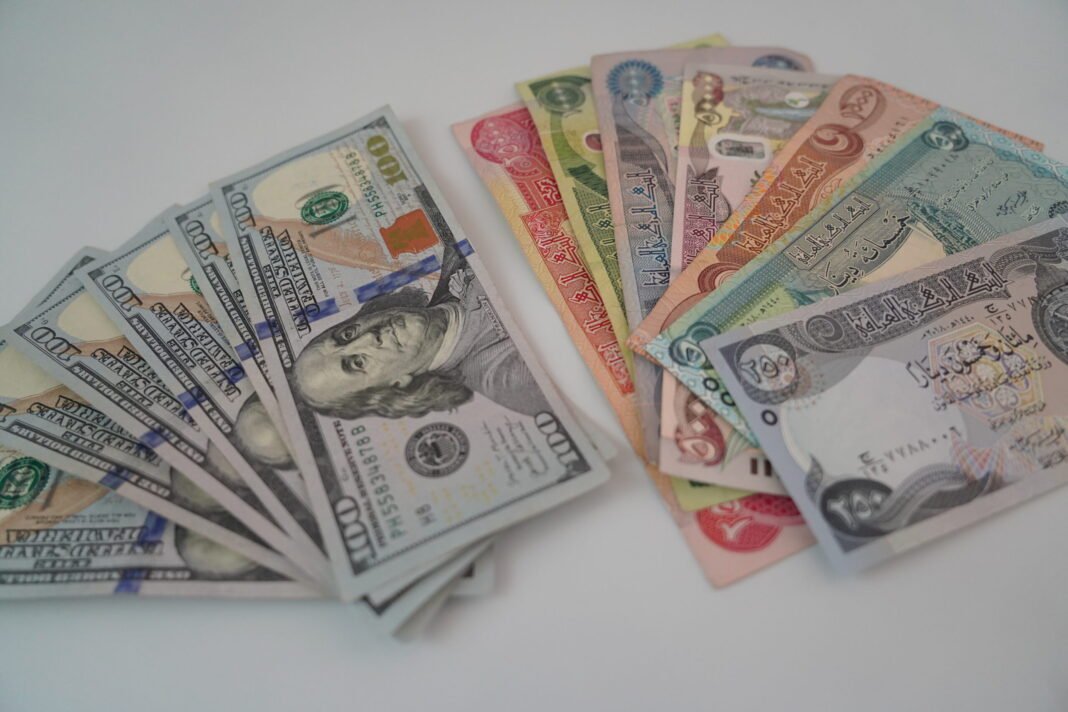Iraq currency rates in focus as local market exchange rates stay well above the official Central Bank rate. In Baghdad, Erbil, and Basra, traders follow real-time supply and demand. This approach widens the gap between policy and practice. As a result, the market rates continue to drift further from the official exchange rate.
In Baghdad, the selling rate for $100 reached 145,050 IQD, while the buying rate stood at 144,550 IQD. In Erbil, rates were slightly higher, with the dollar selling at 145,100 IQD and buying at 144,600 IQD. Basra followed the same pattern as Erbil, recording identical exchange figures.
These market values sharply contrast with the official Central Bank rate of 1,320 IQD per $1, exposing persistent issues in currency control. Despite government efforts to stabilize the exchange rate, the gap remains wide, affecting economic activity across the country.
The rising demand for US dollars plays a big role in this divergence. Iraqis frequently use dollars for business transactions, imports, and even personal savings. Because of this, Iraq currency rates in focus show the increasing challenge for the government to meet local dollar needs through official channels alone.
Additionally, black-market trade and inconsistent dollar flows continue to push market rates higher. Even with regular Central Bank interventions, including auctions, policy adjustments, and efforts to increase transparency and oversight, the available supply of dollars often falls short of the high and growing demand in local markets.
The difference between market and official rates affects everyday life. Imported goods become more expensive, which can raise inflation. Business owners also face tighter profit margins as they struggle with unstable currency costs. Iraq currency rates in focus highlight a situation where price instability creates uncertainty in commerce.
Until the government narrows the gap between official and street rates, pressure on the dinar is likely to continue. Financial experts suggest stronger oversight, increased dollar availability, and reforms to build trust in official channels.


